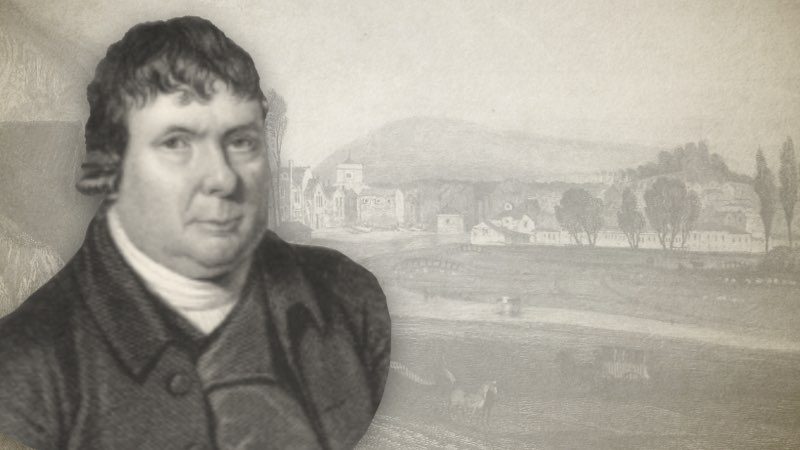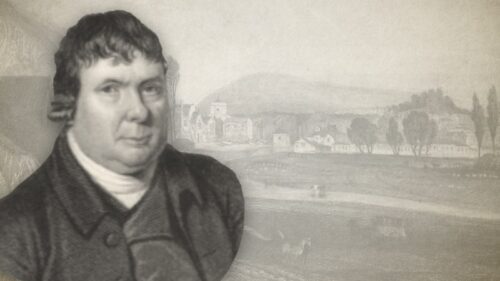-
8 The Personal Precepts of the Gospel Law (2/2)
If the believer is to keep himself unspotted from the world (Js 1:27), then he must learn how to govern his own soul. Otherwise, he will be like a city that is broken down, and without walls (Prov 25:28). If the believer lacks the personal discipline to keep his own heart with all diligence (Prov 4:23), then he will experience spiritual declension and suffer a backslidden condition. It is for this reason we have been looking into the two natures that reside in the believer’s soul. Thus far, we have considered (1) the names given to the two natures; (2) the leading characteristics of the two natures; (3) the dividing lines between the two natures. In this study, I wish to open up (4) the…
-
9 The God-ward Precepts of the Gospel Law
James 1:27: “Pure religion and undefiled before God and the Father is this, To visit the fatherless and widows in their affliction, and to keep himself unspotted from the world.” In a single statement, James reduces the precepts of the Gospel Law under three headings: 1. The God-ward Precepts of the Gospel Law—“Pure religion and undefiled before God and the Father…” 2. The Relational Precepts of the Gospel Law—“To visit the fatherless and widows in their affliction…” 3. The Personal Precepts of the Gospel Law—“To keep himself unspotted from the world.” Having looked more closely at the personal precepts of the Gospel Law, we now turn our attention to the God-ward precepts. When the precepts of the Gospel Law were introduced (see the seventh study),…
-
10 The Relational Precepts of the Gospel Law
James 1:27: “Pure religion and undefiled before God and the Father is this, To visit the fatherless and widows in their affliction, and to keep himself unspotted from the world.” In a single statement, James reduces the precepts of the Gospel Law under three headings: 1. The God-ward Precepts of the Gospel Law—“Pure religion and undefiled before God and the Father…” 2. The Relational Precepts of the Gospel Law—“To visit the fatherless and widows in their affliction…” 3. The Personal Precepts of the Gospel Law—“To keep himself unspotted from the world.” Having looked at the God-ward and personal precepts of the Gospel Law, we now turn to the relational precepts. As pointed in the introduction to the Gospel precepts (seventh study), James appears to be…
-
On Sanctification
By John Gill (1697-1771) To which of the Divine Persons is the sanctification of the believer attributed? (1) God the Father, by electing love. There is a sanctification which is more peculiarly ascribed to God the Father; and which is no other than his eternal election of men to it: under the law, persons and things separated and devoted to holy uses, are said to be "sanctified"; hence those who are set apart by God for his use and service, and are chosen by him to holiness here and hereafter, are said "to be sanctified by God the Father" (Jude 1:1). (2) God the Son, by justifying grace. There is a sanctification also that is more peculiar to Christ the Son of God; not only…
-
The Child of Liberty in Legal Bondage: Preface
The Child of Liberty in Legal Bondage or, The Son and Heir in the Servant's Yoke. A Sermon, Preached at Monkwell Street Meeting, Sept. 9, 1794, by William Huntington (1745-1813)"I am shut up, I cannot come forth." Psalm 88:8 "Thou hast chastised me, and I was chastised, as a bullock unaccustomed to the yoke." Jeremiah 31:18 TO MR. HUNTINGTON. London, Sept, 10, 1794. Rev. and dear Sir, As I understand you are frequently troubled, and put to unnecessary expense, with impertinent and unedifying letters, I humbly beg excuse for troubling you again at this time, hoping you will not have reason at least to complain of the impertinence of this letter, how much soever of its ignorance; and not at all of its expense. I…
-
The Child of Liberty in Legal Bondage: Introduction
"Stand fast therefore in the liberty wherewith Christ hath made us free, and be not entangled again with the yoke of bondage," Gal. 5:1 When the apostle came first into the regions of Galatia, he and his message were most cordially received. His personal deformity, which he calls the temptation in his flesh, they despised not, but received him as an angel of God, even as Christ Jesus. The weight and power of the message counter balanced all the unsightliness of the messenger. The joyful tidings that he brought so excited their gratitude, that they would have pulled out their own eyes, and given them to Paul. But love soonest hot is soonest cold. Paul withdraws from these regions, to lengthen the cords of Zion,…





